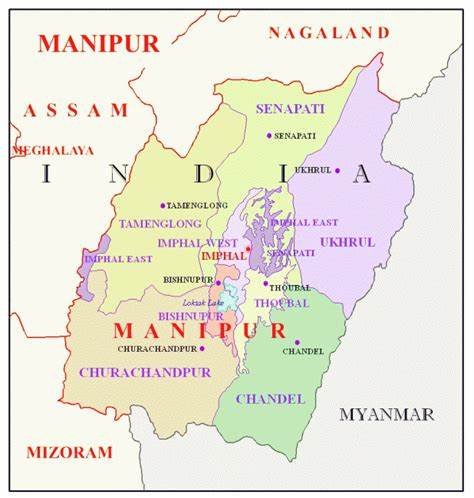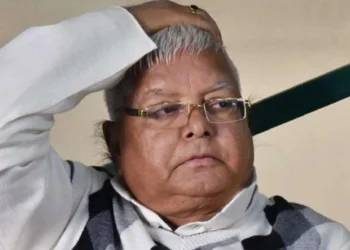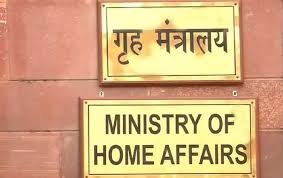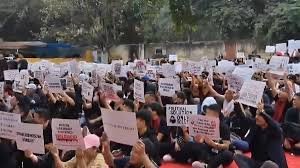Editor’s Note: As part of our ongoing commitment to serve as an advocacy platform for peace in Manipur, we continue to welcome “opinion” pieces from all communities. We encourage individuals to use this space to express their perspectives with sincerity and responsibility. We urge contributors to refrain from language that could be interpreted as inciting violence or hatred. In line with this initiative, we present a write-up by HS Benjamin Matep, Chairman of the Kuki Organisation for Human Rights Trust (KOHUR). Please mail your write-up at: novinkn@gmail.com. Thank you, Navin Upadhyay
By H.S. Benjamin Mate
The decennial Census of India, a constitutional exercise to collect demographic data for informed policy and developmental planning, has historically been a contentious issue in Manipur — particularly for the state’s tribal population. As the country prepares for the long-delayed 2021 Census, likely to be implemented in 2026–2027, deep concerns persist that the tribal communities, especially the Kuki-Zo and Naga peoples, may once again face a systematic suppression of their population figures.
Historical Context: Disproportionate Representation and Meitei Dominance
Manipur, a multi-ethnic state, consists of three main communities — the Meitei, Nagas, and Kuki-Zo tribals. While Meiteis form the majority in the Imphal Valley, the Nagas and Kukis predominantly inhabit the hill districts. Since Manipur attained statehood in 1972, the Meitei community has enjoyed a disproportionate number of seats in the State Assembly, despite the large geographic and population presence of tribal communities in the hills.
The 2001 Census posed a challenge to this imbalance. Based on its data, the Indian Parliament enacted the Delimitation Act, 2002, which sought to reconfigure Assembly and Parliamentary constituencies in line with demographic shifts of Schedule Tribe and Schedule Caste communities. The Delimitation Commission of India, chaired by retired Supreme Court Justice Kuldip Singh, recommended that five additional seats be reserved for Scheduled Tribes in Manipur, increasing their total from 19 to 24.
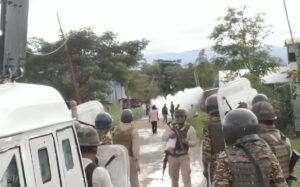
READ: Outrage Grows Over a Helpless Muslim Man’s killing in Imphal West
Legal Sabotage: Weaponizing the Judiciary
Fearing a loss of political dominance, the Meitei-majority government swiftly moved to sabotage the delimitation process. They challenged the 2001 census data in the Guwahati High Court, Imphal Bench, alleging that tribal groups had manipulated population figures. The court, in a controversial and arguably extrajudicial decision, ordered a partial “recount” in Senapati District, specifically in the sub-divisions of Mao, Paomata, and Purul.
When local Naga communities resisted this order, the state government arbitrarily deleted nearly 90,000 names from the official census records — an act widely condemned as a direct violation of census protocols and constitutional protections.
Subsequent attempts by the Meitei-led government to engineer recounts in other tribal-dominated districts such as Ukhrul and Chandel were also challenged. A Public Interest Litigation (PIL) on behalf of All Tribal Students’ Union Manipur (ATSUM) and other tribal organisations was filed by me, culminated in a landmark stay by the Supreme Court of India in July 2007, halting further manipulative efforts.
Despite this judicial victory, the delimitation process in Manipur was deferred in 2008 through a Presidential Ordinance, citing “fragile law and order” — a decision heavily influenced by political pressure from the Meitei community and acquiesced to by the Congress-led UPA Government. This was subsequently formalized via an amendment to the Representation of the People Act, 2008, effectively postponing democratic justice for tribal communities.
READ: Adani’s Kokrajhar Thermal Plant Raise Alarm: Is Tribal Land up for Grab in India?
The 2011 Census: Engineered Decline of Tribal Numbers
Further manipulation occurred during the 2011 Census, when the then-Chief Minister Okram Ibobi Singh reportedly directed Deputy Commissioners and census officials to cap the decadal growth rate of tribal populations in hill districts. This led to a statistically implausible decline in tribal population growth, undermining future claims to proportional representation.
A Renewed Threat: 2027 Census and the Meitei Propaganda Machine
With the next delimitation based on census data of 2027, history seems poised to repeat itself. The Meitei political elite, fearing a demographic correction that would threaten their entrenched power, have already launched a smear campaign labeling Kuki-Zo people as “illegal immigrants” and “foreigners”, aiming to delegitimize tribal presence and suppress actual headcounts.
This targeted propaganda, couched in xenophobic rhetoric, seeks to influence census officials, national policymakers, and public opinion. It is part of a broader Meitei strategy to ensure that any future delimitation excludes or minimizes the political voice of the tribals — once again undermining democratic representation.
The Need for Structural Reform
Manipur’s systemic failure to ensure equitable governance stems from the institutionalized marginalization of its tribal populations. The deliberate suppression of census data, legal manipulation, and use of administrative machinery against tribal interests is a fundamental violation of constitutional principles.
In the interest of peace, justice, and federal integrity, the Government of India must urgently consider granting Union Territory status with legislative powers to the tribal-dominated regions of Manipur — particularly the Kuki-Zo and Naga areas. This is the only viable solution to end the cycle of majoritarian oppression and foster a framework of peaceful coexistence, where every community is guaranteed fair political representation, development, and dignity.



